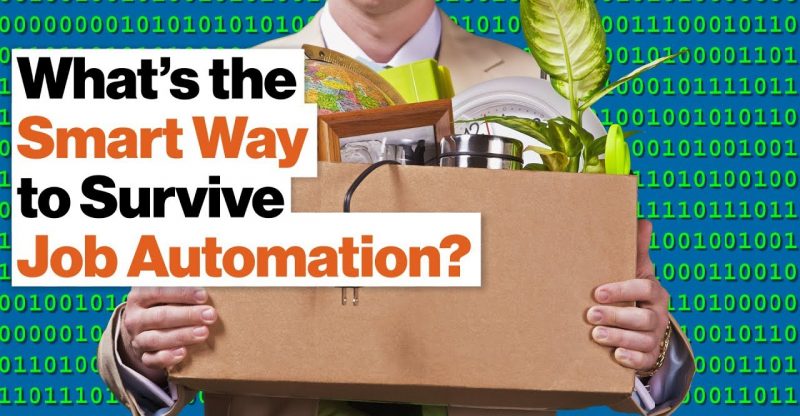Why Coding Skills Alone Won't Save You From Job Automation | Scott Hartley
The conventional wisdom developing in the face of job automation is to skill up: learn how to code, become a member of the rising tech economy. Venture capitalist Scott Hartley, however, thinks that may be counterproductive. “Just because you have rote technical ability, you may actually be more susceptible to job automation than someone who has flexible thinking skills,” he says. Retraining yourself in tech-based areas is smart, but the smartest way to survive job automation is to develop your soft skills—like improvisation, relational intelligence, and critical thinking. Believe it or not, those ‘softer’ assets will rule in the digital age, so play to what makes you human. In time, everything else will be done by a robot. Scott Hartley is the author of The Fuzzy and the Techie: Why the Liberal Arts Will Rule the Digital World.
Read more at BigThink.com: http://bigthink.com/videos/scott-hartley-why-coding-skills-alone-wont-save-you-from-job-automation
Follow Big Think here:
YouTube: http://goo.gl/CPTsV5
Facebook: https://www.facebook.com/BigThinkdotcom
Twitter: https://twitter.com/bigthink
Transcript: I think one of the big counterintuitive points that I draw out in the book ‘The Fuzzy and the Techie’ is this notion that just because you have technology skills doesn’t necessarily make you relevant in tomorrow’s tech-led, data-infused economy. And if you look at the underliers of jobs, there are tasks that make up every different job that we have, and each of our jobs have some subset of tasks that are rote, that are scripted, that are highly routine. These are things that, over time, we can either program robots to do them if they’re manual or we can program machines to do them through machine learning. But there’s always a subset that’s more complicated or more complex that requires collaboration, that requires communication or doing things that are on the frontier of what we haven’t seen before; things that require improvisation. And those are the very skills that require adaptive or flexible learning. And so I think the counterintuitive point is that just because you have rote technical ability you may actually be more susceptible to job automation than someone who has flexible thinking skills. So it’s this false dichotomy between having technical skills being relevant, having soft skills being irrelevant. In fact it’s more the opposite. So when we think about automation it’s necessary that we engage with data, it’s necessary that we learn the fundamentals of technology, that we learn to code, we learn to speak this new language, but I think we can’t forget as well the soft skills that will enable us to weather the changing economy as the machines continue to take more and more rote and scripted tasks away from humans.
So the progress we’ve seen recently with things like deep learning with the DeepMind and AlphaGo and sort of playing the world champion in Go—I mean, these are fundamentally groundbreaking endeavors, I think the really interesting thing is that the artificial intelligence we talk about today is still context dependent; it’s still dependent on being on a board, being within the confines of a set of rules. And so if you think about simple tasks, those are rules-based tasks that may be very easy to automate, we’ve sort of migrated up the funnel where we’re talking about immensely complicated tasks. But I wouldn’t necessarily say that we’ve transgressed into complexity where there’s really something that’s off the board, off the chess board entirely, off the Go board entirely. And so I think when we can move to a realm where we’re not context dependent, to me that’s one of the definitional qualities of when it’s truly perhaps artificial intelligence and not sort of A.I. that’s largely human led or human guided.
source






